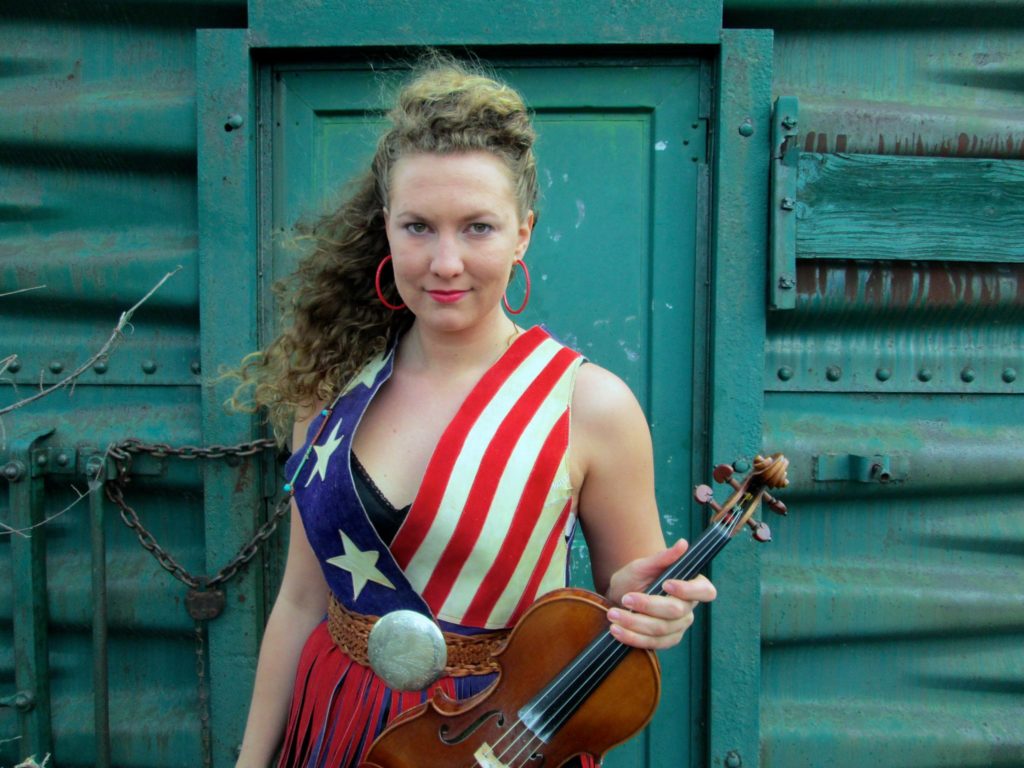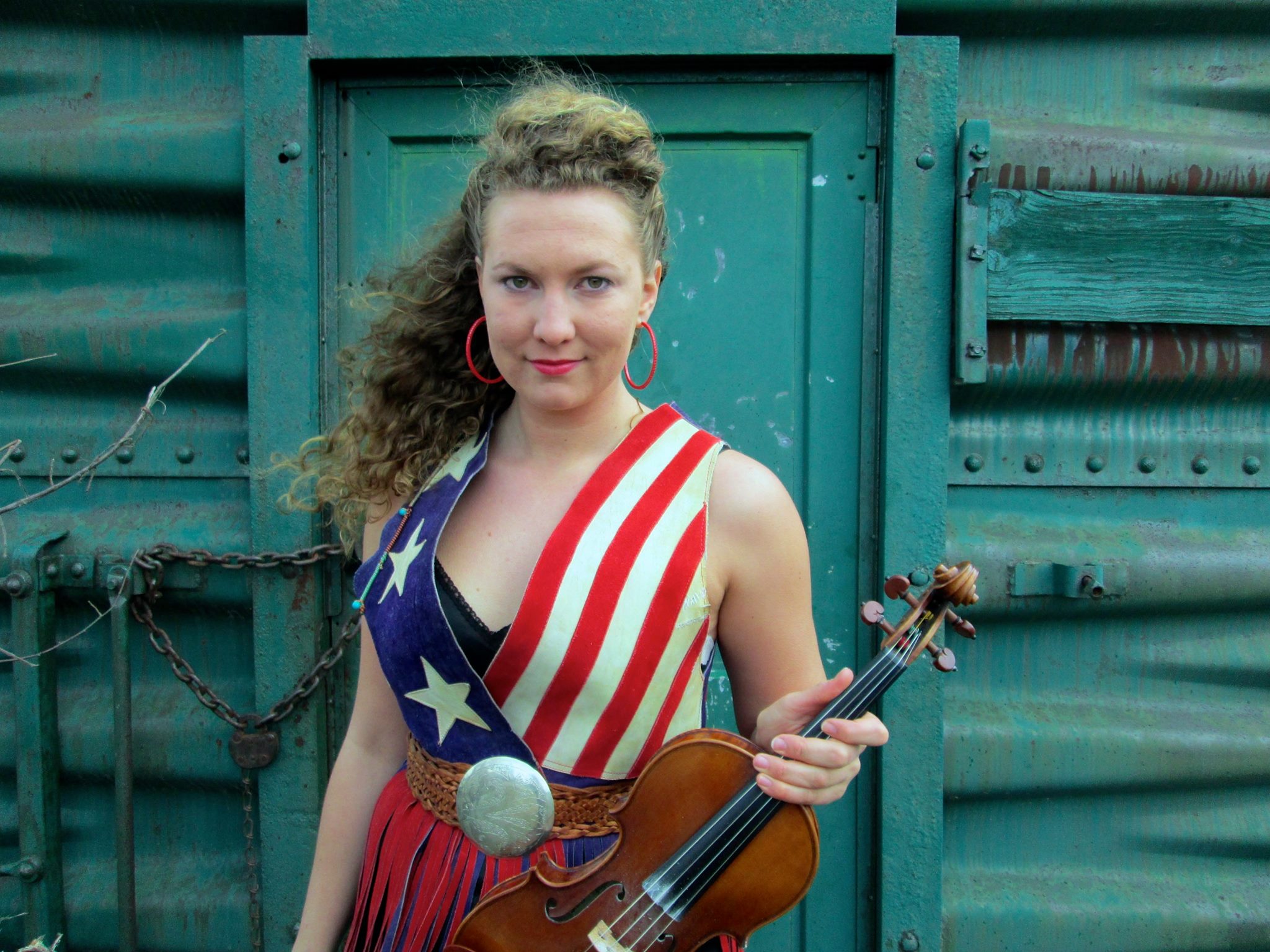The Old and The New: An Interview With Ida Mae Specker
Ida Mae Specker is a mixologist of sorts, but not in the sense that you may be thinking. She takes genres both traditional and contemporary with her music and blends them in a fashion that creates something unique and fresh while maintaining a nod to the past where it was created.
This weekend she will be joined by Faith Wood during her set at Free Verse Festival in Chelsea, Vermont and we expect just that. Traditional reels intermingled with a more rollicking back drop. Harmonies that could melt even the coldest of hearts and an attitude and grit that grabs your attention and says “hey, listen to THIS!”.
We caught up with Ida Mae briefly to reflect on her history as an artist, the importance that community has played in that history and what we can expect this weekend at the festival. Read on folks. Read on.

RLR: In terms of your music, you have penned this term “old time music for modern times.” As with a lot of artists who veer in the direction of old-time or bluegrass or fiddle style music, I imagine there is a backstory. So, what is yours? Where did your respect for the traditions come from?
IMS: My dad, John Specker, is a fiddler. I grew up listening to him playing old-time music for up to eight hours a day. Most mornings, I would wake up to the sound of him playing, and would often fall asleep to it. I took it for granted, like part of the natural landscape. I always loved watching him perform, and I took violin lessons as a child, but I quit around age 10 and went through a period of feeling embarrassed and thinking old-time music was very uncool. I started gaining interest again when I was about 16, and started performing alongside my dad and older sister. When I went away to college, I realized that folk music had started to get a little bit trendy, and that my dad actually had a robust cult following within the genre. I remember playing a tune on the Main Green, and another student came over to me and said, with scholarly confidence, “Your bowing technique sounds a lot like John Specker, where did you learn to play like that?” I moved around for a couple years after graduation, but eventually moved back to my hometown. I’ve spent the past 5 years studying with my dad, recording, gigging, teaching lessons, and collaborating with other local musicians. I’ve established my own fiddling style, and I continue to grow and evolve within the tradition. Old-time music is my foundation. I think of it like a well or a spring- new possibilities and artistic inspirations are constantly flowing from a single source. The music itself is in the public domain, so anyone has the right to draw from the well. I call it “old-time music for modern times” because it is a living tradition. Every time someone plays a tune, a melody that is hundreds of years old is transformed and reinterpreted in a modern way. It’s a way of channeling and invoking voices from the past, but it’s also a way of expressing your individuality. As long as people continue to pass on the music to the next generation, it will continue to serve its purpose. As my dad says, we are just “kinks in the chain.”
RLR: In that same vein, you don’t just wield a fiddle and bow with a fiery fierceness, you have other projects that venture into punk and rock realms. How do you find it is to dovetail your love of two fairly differing styles of music into one package? Do you find that each style can (and perhaps does) influence each other when you are writing or performing?
IMS: I love to combine influences and genres of music, and I rarely stick to just one. When I met Faith Wood, at age 24, I was blown away by her original material and the way she combines different styles of music to create timeless melodies and lyrics that speak to the universal human condition. She grew up in Vermont, listening to her parents play bluegrass music together, so we have similar roots. We have since performed in several different configurations and bands that combine folk, punk, rock, and country. Along the way, I have played fiddle, washboard, drums, and electric lead guitar, and she has played electric bass, acoustic and electric guitar, and harmonica. Fitting differing styles into one package comes naturally to us. I think we both synthesize our own influences internally, relate it to our life experiences, and when we write a song or an instrumental part, it just comes out.
RLR: Old time is completely soaked in the tradition of community, sharing songs, swapping solos and telling stories. Likewise, this event at Free Verse is all about community. can you tell us a little about what the community in Vermont, music or otherwise, has meant to you as someone who is creating an art?
IMS: The Vermont community has meant a lot to me. I have always felt very supported by people and venues in this state. Of course, living in Vermont can be a lonely experience at times, but I feel like the quality of life and the quality of people here make up for what we lack in numbers. My favorite type of venue is a festival or fair, because it brings together so many people in the community. I feel lucky to live in a state where musicians are generally supportive of one another, not cutthroat. I’ve had an incredible amount of fun getting to know the musical community, especially the men and women of What Doth Life, a collaborative based out of Windsor. The isolation that comes with living in rural Vermont can be a blessing and a curse. The trick is to find a balance between incubating ideas and then venturing out into the world to share the results of your work.
RLR: This particular show at Free Verse Farm is a duo with Faith Wood. What can people expect from your set?
IMS: Tight vocal harmonies, driving rhythms, emotional deliveries, tons of eye contact, uncensored banter punctuated by laughter, fiddle tunes and original songs with a rock and roll heartbeat.
RLR: Let’s go back your appreciation for multiple genres. A lot of folks may enjoy bluegrass, rock, folk, even R&B and rap all together, but its an entirely different plane to be able to play multiple genres and do it well. So, what was on the turntable, in the cassette deck or discman growing up that may give people an idea of where your influences come from?
IMS: Tons of Mariah Carey 😉
You can grab tickets to Free Verse Festival RIGHT HERE. It happens this coming Sunday from 11 AM – 5 PM in Chelsea, Vermont at Free Verse Farm and Apothecary.

